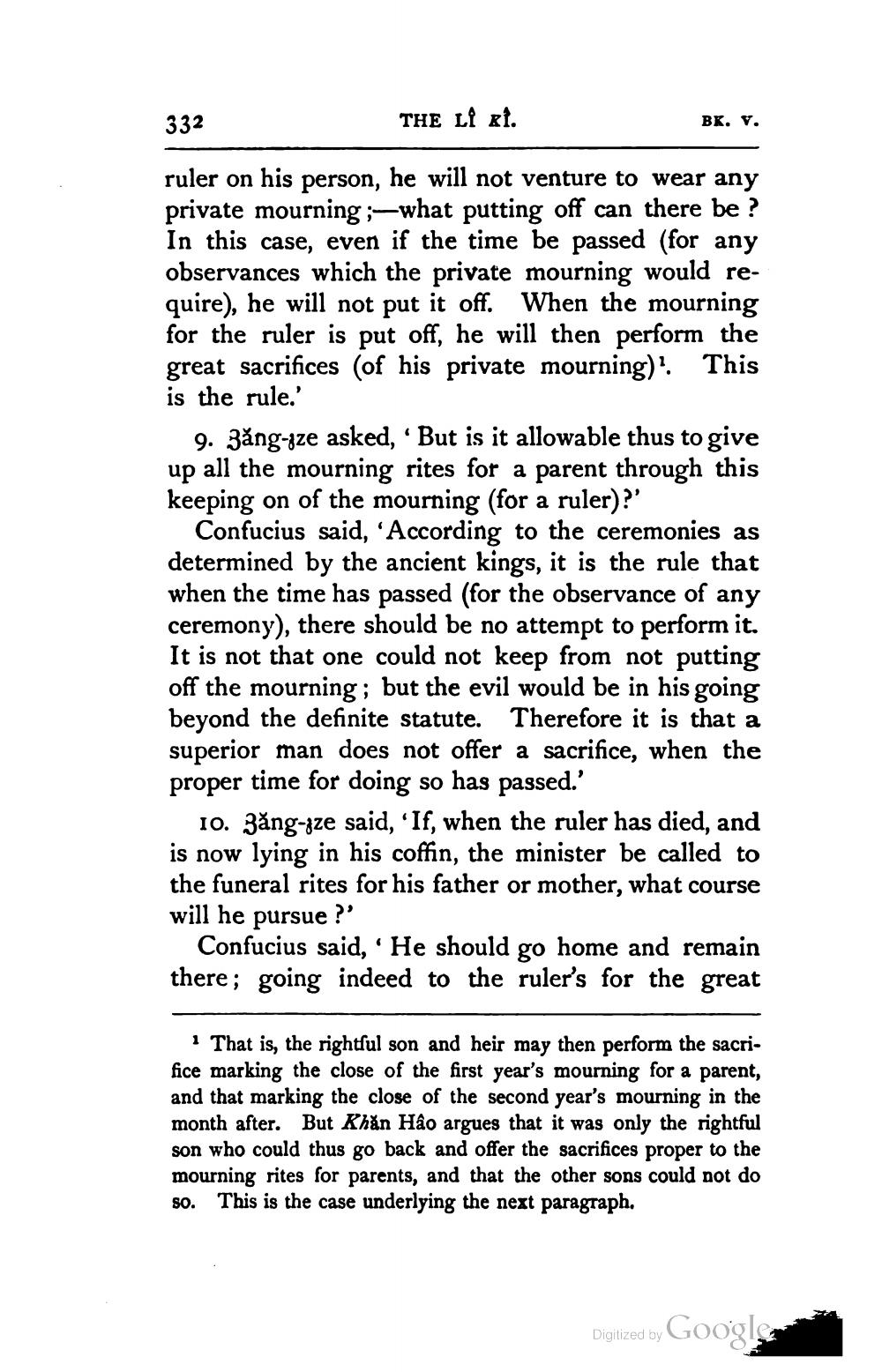________________
332
THE LÎ ki.
BK. Y.
ruler on his person, he will not venture to wear any private mourning ;-—what putting off can there be ? In this case, even if the time be passed (for any observances which the private mourning would require), he will not put it off. When the mourning for the ruler is put off, he will then perform the great sacrifices (of his private mourning)? This is the rule.
9. Zăng-zze asked, “But is it allowable thus to give up all the mourning rites for a parent through this keeping on of the mourning (for a ruler)?
Confucius said, 'According to the ceremonies as determined by the ancient kings, it is the rule that when the time has passed (for the observance of any ceremony), there should be no attempt to perform it. It is not that one could not keep from not putting off the mourning; but the evil would be in his going beyond the definite statute. Therefore it is that a superior man does not offer a sacrifice, when the proper time for doing so has passed.'
10. 3ăng-xze said, 'If, when the ruler has died, and is now lying in his coffin, the minister be called to the funeral rites for his father or mother, what course will he pursue ?"
Confucius said, 'He should go home and remain there; going indeed to the ruler's for the great
"That is, the rightsul son and heir may then perform the sacrifice marking the close of the first year's mourning for a parent, and that marking the close of the second year's mourning in the month after. But Khăn Hâo argues that it was only the rightful son who could thus go back and offer the sacrifices proper to the mourning rites for parents, and that the other sons could not do so. This is the case underlying the next paragraph.
Digitized by Google




